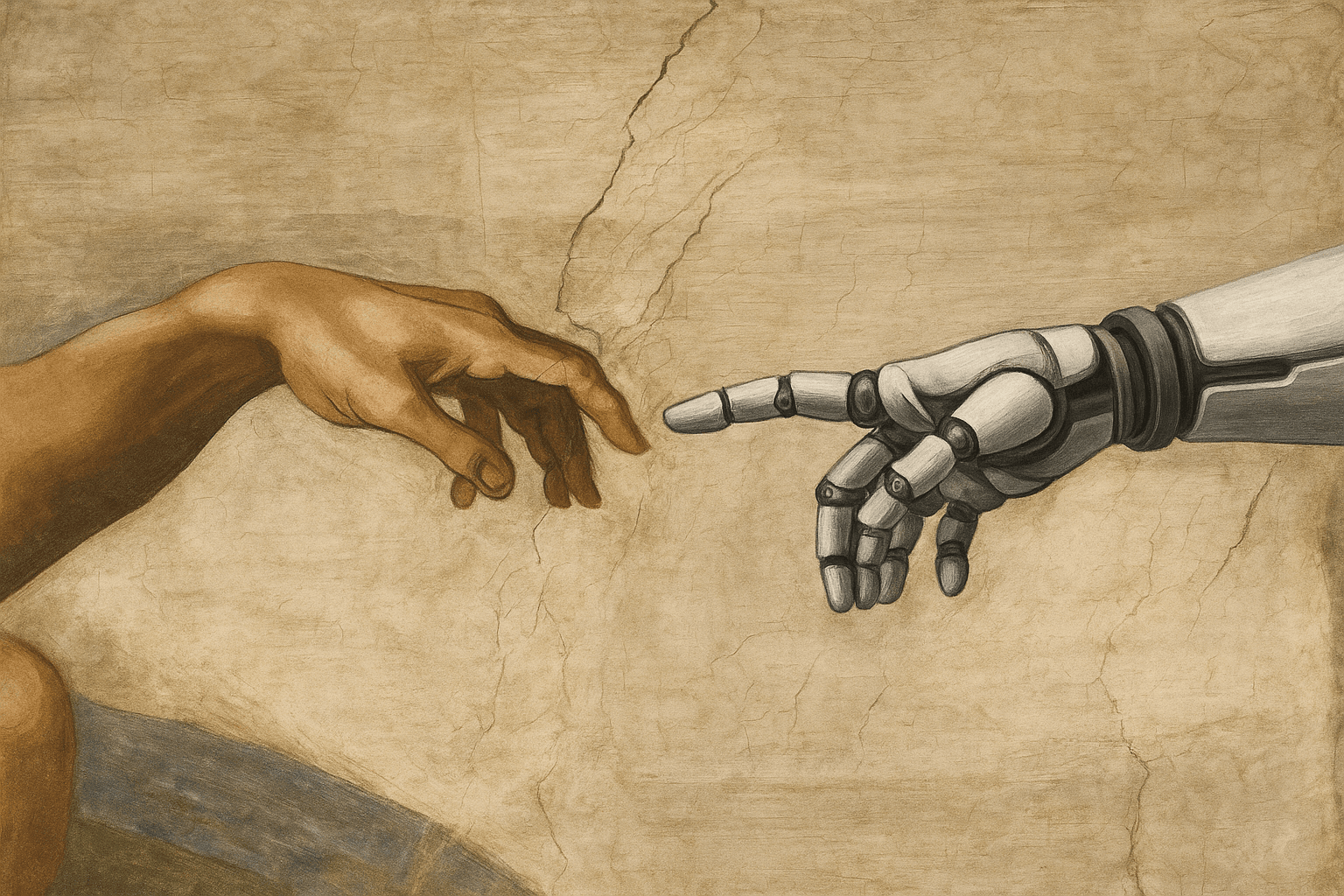# **It’s Inevitable, Man — Final Outline (Infinity Spine / Antifragility Engine)**
---
## **Cold Open — “History Used to Move at a Human Pace”**
- Hook line: _“History used to move at a human pace. Now it updates overnight.”_
- Tone: wry, reflective, cinematic.
- Thesis: _Once we learned to correct our errors faster than they could destroy us, progress became irreversible._
- Foreshadow: _We’re not fragile passengers on the road of progress — we are the road, rebuilding as we drive._
---
## **I. The Speed of Now — Acceleration as the New Normal**
**Purpose:** Establish the exponential curve and the sense of inevitability.
- Contrast linear vs exponential progress.
- Quick factual montage: electricity (46 yrs to mass adoption) vs smartphones (5 yrs).
- Progress compresses time; change compounds.
- Emotional tone: exhilaration tinged with disorientation.
- Implicit antifragility: every disruption teaches faster than it breaks.
**Bridge:** “If history had chapters, this one’s being written in real time — and even the ink is self-editing.”
---
## **II. The Personal Timeline — Living Through the Curve**
**Purpose:** Ground the concept in your own lived domain: web development as microcosm.
- From static pages → frameworks → serverless → AI copilots.
- The feeling of watching your tools mutate faster than your mastery.
- “I didn’t change jobs; my job reinvented itself.”
- Parallel: civilizations that reinvent faster than they collapse endure.
- Subtext: you, too, became antifragile — learning through obsolescence.
**Bridge:** “That pattern isn’t just in code. It’s in everything.”
---
## **III. The Beginning of Infinity — Deutsch’s Core Insight**
**Purpose:** Introduce the philosophy that powers the thesis.
- Deutsch’s claim: explanatory knowledge makes progress _unbounded_.
- “Problems are inevitable, but so are solutions — if we keep explaining.”
- Dynamic societies (error-correcting) vs static ones (dogmatic).
- Each solved problem spawns new solvable ones → recursive progress.
- Define _Infinity_: not perfection, but endless improvability.
- Tone: rational wonder, not mysticism.
**Bridge:** “Once a species learns to improve its own explanations, the rest is just engineering.”
---
## **IV. Electric Everything — The Foundations of Progress**
**Purpose:** Show how material abundance accelerates everything else.
- EVs, batteries, solar cost collapse, grid decentralization.
- Abundant energy turns physical constraints into software problems.
- Example of antifragility: distributed energy systems that improve under load or failure.
- Line: “Even the grid learned to heal itself — a civilization’s nervous system evolving in real time.”
**Bridge:** “But the real leap came when knowledge started improving itself.”
---
## **V. Minds of Metal — The Meta-Accelerant**
**Purpose:** The inflection point: AI as the generator of new explanations.
- From pattern recognition → reasoning → self-refinement.
- Models learning through error = civilization learning faster.
- Parallel to human evolution: _antifragility codified into algorithms._
- Core line: “We built something that fails forward, just like we do.”
- Tone: awe mixed with quiet caution — driver vs passenger question.
**Bridge:** “And while machines learned to think, we began to redesign the thinkers.”
---
## **VI. Self-Directed Evolution — The Editable Human**
**Purpose:** Merge augmentation + genetic design into a single “human 2.0” chapter.
- Neural interfaces, prosthetics, CRISPR, polygenic selection.
- Nature’s random mutations replaced with intentional iteration.
- Ethical tension: choice vs consequence; equality vs capability.
- Antifragile framing: evolution by trial and error → evolution by design and feedback.
- Line: “We stopped waiting for nature’s update cycle.”
**Bridge:** “But the most powerful change wasn’t in our bodies — it was in how we connected.”
---
## **VII. Global Integration — The Planetary Mind**
**Purpose:** The systemic scale — humanity as one learning organism.
- The Internet, trade, information networks as civilization’s synapses.
- Decentralization as antifragility at scale — no single point of failure.
- Each crisis strengthens the mesh (wars, censorship, pandemics).
- “Every firewall spawns a mirror; every collapse writes its own repair manual.”
- Globalization reframed: not political — epistemic. Knowledge routing around obstacles.
**Bridge:** “When there’s no more blank map left, progress looks up.”
---
## **VIII. Out There — Expanding the Domain of Problems**
**Purpose:** The cosmic continuation — progress literally escaping gravity.
- SpaceX, Artemis, colonization as “civilizational redundancy.”
- Not escapism but optimization: distributing existence.
- Deutsch tie-back: _explanations spread beyond the planet that birthed them._
- Tone: wonder, inevitability, poetry.
- Line: “We’re exporting the habit of problem-solving to the cosmos.”
**Bridge:** “So if the story can’t end in expansion — how could it ever end at all?”
---
## **IX. The Only Brake — And Why It Fails**
**Purpose:** Confront the question: can it all end?
- Theoretically: only total annihilation halts progress.
- Practically: knowledge is too distributed, too encoded, too redundant — it survives.
- Antifragility revealed fully:
- Taleb’s systems thrive on volatility.
- Deutsch’s societies thrive on error correction.
- Together: _we grow by breaking things — because we fix faster than they fail._
- Core line: “Entropy is the enemy that trains us.”
- Emotional turn: humility meets inevitability.
**Bridge:** “So maybe the answer isn’t to slow down — but to steer better.”
---
## **X. Acceptance — Riding the Infinite Curve**
**Purpose:** Resolution — not surrender, but harmony with the nature of progress.
- Infinity as direction, not destination.
- Antifragility as rhythm, not resilience.
- Call to agency: the point isn’t to stop the ride, but to stay conscious on it.
- Closing lines (sample):
> “Every failure we survive becomes part of our design.
> Every collapse writes the next draft of the future.
> It’s not luck, it’s structure.
> It’s inevitable, man.”
---
## **Thematic Architecture (Meta Summary)**
|Tier|Theme|Function|
|---|---|---|
|**Outer Arc (The “Why”)**|**Infinity**|Civilization’s purpose and trajectory — open-ended progress.|
|**Inner Engine (The “How”)**|**Antifragility**|The mechanism — progress survives through adaptation and feedback.|
|**Tone**|Reflective → Expansive → Accepting|Feels like philosophy wearing an engineer’s jacket.|


